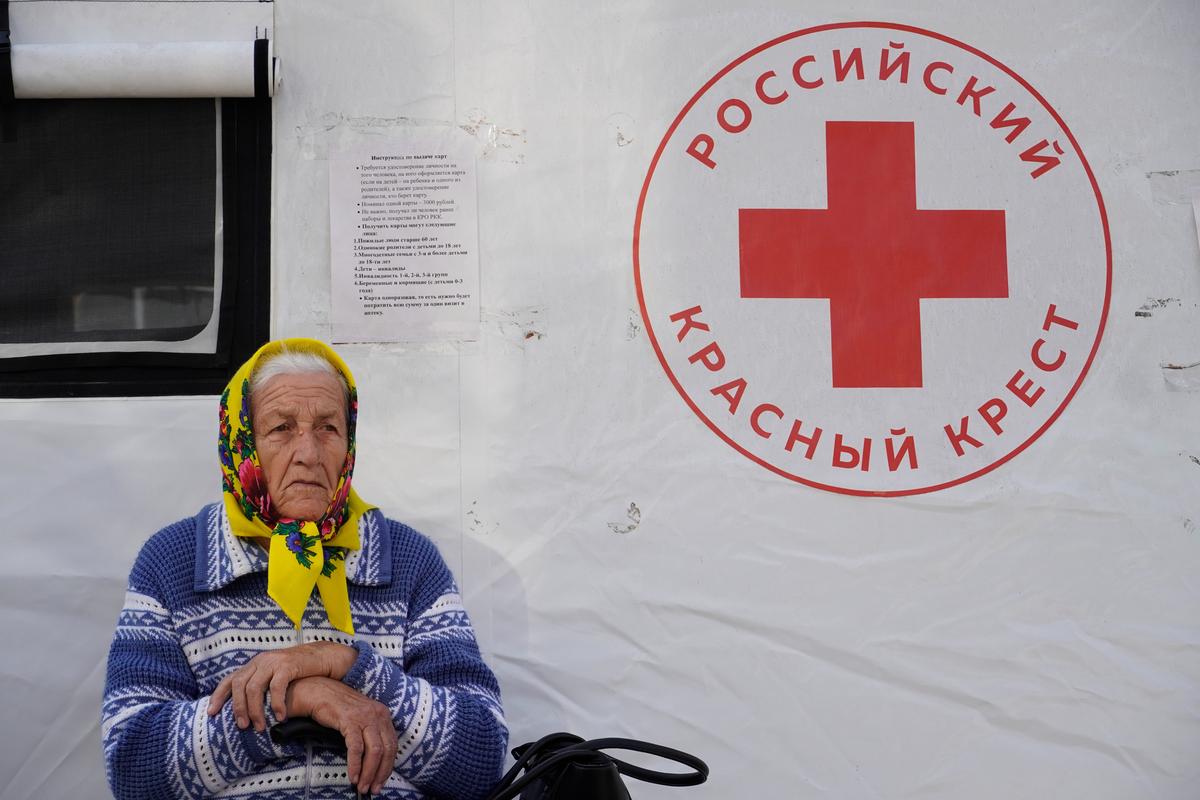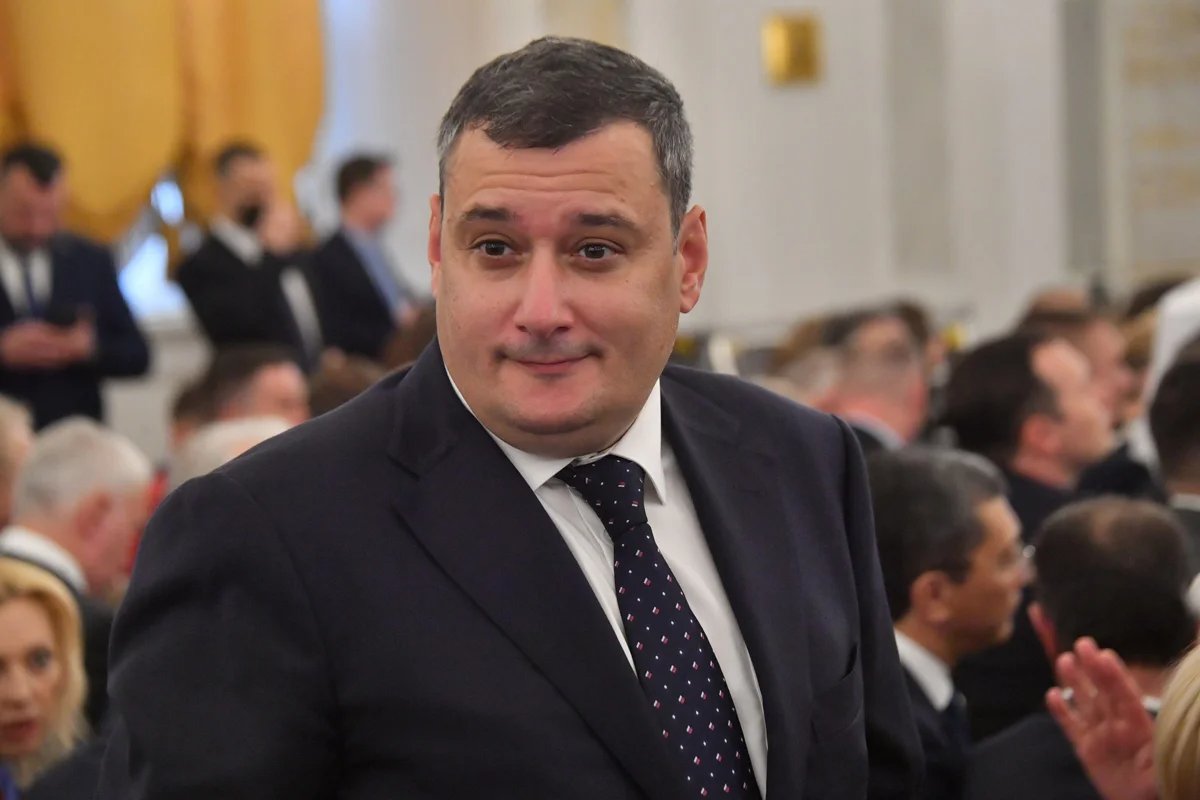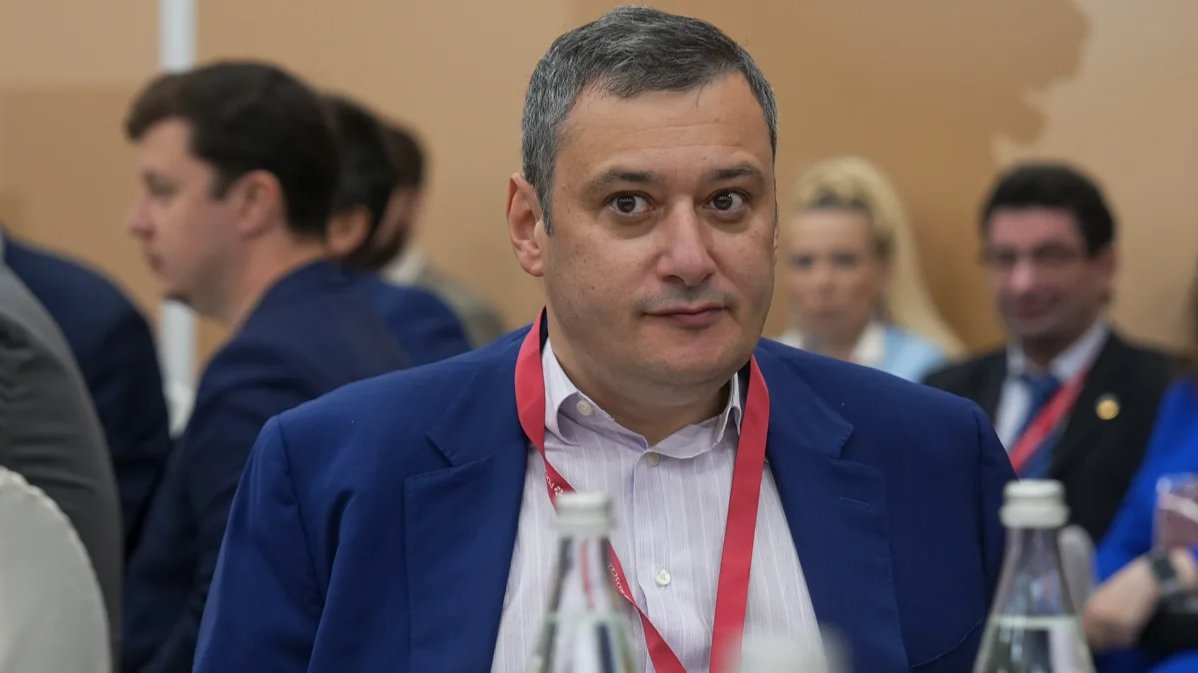Following the resignation of Kursk Governor Alexey Smirnov, Vladimir Putin appointed Alexander Khinshtein, an already high-profile State Duma deputy who represents Russia’s Samara region, to be the region’s acting governor on Thursday, apparently believing him capable of changing the media narrative of a region in crisis.
The appointment
Putin told Khinshtein upon his appointment that he would have “much to do in terms of restoring housing and communal services” in the Kursk region, as well as “rebuilding” its economy once Russian forces had forced out the Armed Forces of Ukraine (AFU), reminding Khinshtein that his main duty was to help those who needed it most.
Calling his appointment “a great honour and responsibility”, Khinshtein said that there was a lot of work to do and committed himself to ensuring his constituents once again felt that they were “part of our large, united country”, adding: “There is no greater happiness than serving our country, our people, and our president.”
Khinshtein replaces Kursk’s previous acting governor, Alexey Smirnov, who, despite being re-elected with 65% of the vote in September’s gubernatorial elections, ultimately only managed to hold the post for 205 days before being forced to resign as fury at the regional administration’s failure to evacuate civilians from the region’s border districts grew.

Alexey Smirnov in a temporary accommodation centre for residents of the Kursk region, 1 December 2024. Photo: Kursk Region Governor
Although governors have no role in military matters, it was on Smirnov’s watch that the AFU invaded the Kursk region in early August, going on to take control of at least 28 settlements, many of which remain under Ukrainian control four months later. Given that Kursk was a border region that was already subject to regular Ukrainian shelling, the surprise AFU incursion made Smirnov’s already difficult job far harder.
Smirnov’s predeccesor as Kursk governor, Roman Starovoyt told reporters on Friday that Smirnov had clearly experienced “communication problems” in implementing the various support measures he had planned for the region, adding that the situation wasn’t “easy, and a decision was clearly made”.
Since the start of the Ukrainian incursion into the region, Kursk residents living in areas near the Ukrainian border have either been forced to leave their homes in a hurry, often without their documents or personal belongings, or found themselves trapped in villages under Ukrainian occupation.
Frustrated by the poorly organised official response to the Ukrainian military incursion, in which promised evacuations were often postponed or abandoned altogether, as well as by the subsequent difficulties in communicating with those left behind, some Kursk residents began recording video messages to Putin, asking him for help to return home.
The public mood darkened in November when displaced residents of the region’s Sudzha and Glushkovo districts held unauthorised rallies in the centre of regional capital Kursk. One village council from the Korenevo district published 24 video appeals by residents to Putin, in which the displaced complained of the regional administration’s delays issuing certificates for new housing and making compensation payments for lost homes.
In response to the protests, the Kremlin dispatched Deputy Prime Minister Marat Khusnullin to the region, and displaced residents were also hurriedly invited to a town hall-style meeting with Smirnov, at which the authorities announced the dismissal of Sudzha district head Alexander Bogachev and undertook to remove Anatoly Drogan, the official in charge of local policy, from office.

A displaced elderly woman awaits medical attention in Russia’s southwestern Kursk region, 10 September 2024. Photo: EPA-EFE
“The main thing that undermined the federal authorities’ faith in Smirnov was the Sudzha protest and the way he handled it. It feels like a fairly unsavoury story,” Alexey Gilev from the Andrew Gagarin Center for Civil Society and Human Rights in St. Petersburg told Novaya Europe.
Gilev described Smirnov’s main advantage as being the fact that he was a local and had worked in the Kursk administration in the past, including under Starovoyt, so his appointment in the spring was seen positively both inside and outside the region.
However, his lack of backing from influential people in Moscow meant that there was no one to protect him when things went wrong. “We can’t call this an incredible failure compared to other governors in emergency situations. But his lack of patrons played a role,” Gilev said.
Military correspondent Roman Alyokhin, a former adviser to Smirnov, described him as a good manager, but conceded that his was the wrong approach to a crisis in a frontline region, identifying his tendency to micromanage situations, which clogged up the system. Alyokhin also said that due to staff shortages on Smirnov’s team, the governor’s instructions were often ignored.
“When Smirnov met Korenevo residents, he said he almost cried on stage because he couldn’t answer or help people because he was sick and had lost his voice,” Alyokhin said on Telegram. “That was what Smirnov was really like. He was not some technocrat. He was a hands-on man of the people, a father figure.”
Nezygar, an anonymous Russian news and analysis Telegram channel, also tied Smirnov’s resignation to his failure to manage the situation in the frontline region. It said Smirnov was initially considered weak, and his low popularity rating, leadership failures and corruption scandals only increased the criticism coming his way.
Khinshtein was once a tabloid journalist known for his scandal-heavy reporting, close co-operation with the secret services and for being litigious.
A new broom
Khinshtein was a journalist before getting elected to the State Duma as a deputy for ruling party United Russia. He wrote for state-affiliated tabloid Moskovsky Komsomolets, and became known for his scandal-heavy reporting and close co-operation with the secret services. He published kompromat, had contact with Russian law enforcement agencies, and was known to be litigious.
Since first becoming a State Duma deputy over 20 years ago, Khinshtein has made a name for himself as an author of controversial legislation banning so-called “LGBT propaganda”, as well as for his support of bills protecting the personal data of state officials, making the spread of “false information” about government bodies a crime, and sanctioning foreign social media companies. Though he temporarily left the State Duma in 2016 to become an adviser to Viktor Zolotov, the head of Russia’s National Guard, he subsequently returned to the lower house of Russia’s parliament.
Since the Russian invasion of Ukraine, Khinshtein has focused his efforts on condemning anyone daring to speak out against the war, calling for criminal charges to be brought against Moscow legislators Yelena Kotyonochkina and Alexey Gorinov, among others, for spreading false information about the Russian military after both local councillors proposed cancelling public events for children out of respect for the Ukrainian children and other civilians dying in the war.

Alexander Khinshtein. Photo: Picvario Media, LLC / Alamy / Vida Press
Khinshtein has also come out as a passionate advocate of so-called “traditional values”, having led several homophobic campaigns, including ones outing public officials in Saratov, the Volga republic he represents in the State Duma.
This year, Khinshtein has repeatedly spoken out on the role of YouTube in Russia. In July, he said that the download speed of YouTube on desktop computers could drop by up to 70% if the company didn’t start complying with Russian laws. However, the very next day he said YouTube itself was again to blame for the drop in speed.
He also outed Sergey Burtsev, a local politician in the Samara region on the Volga, publishing a photo of him and his partner online. Burtsev subsequently resigned.
Sky’s the limit
What do the federal authorities expect from Khinshtein as governor of the Kursk region? Gilev says the crisis in the region was primarily due to scandal in the media and the fact that outgoing governor Smirnov didn’t come across as very capable.
Describing Khinshtein as “media-savvy” and “convincing”, Gilev also notes Khinshtein’s “slightly dark charisma” and the fact that he “often goes on the offensive”. Suggesting that Khinshtein’s public image could be effective and come across well, “He both champions repression and sees that it is carried out. … The authorities expect him to be a proactive governor.”
“The Kursk situation is extraordinary, but Putin can put up with a lot. If there’s some discontent on the ground, but his overall performance looks good enough for the Kremlin, the experiment will be seen as a success.”
The move is potentially career-defining for Khinshtein himself, despite the risks that come with such a high-profile appointment in a crisis-gripped region during wartime. As Gilev says, for all Khinshtein’s media presence, he was not slated for promotion. However, if he turns out to be up to the job, the sky could be the limit.
Join us in rebuilding Novaya Gazeta Europe
The Russian government has banned independent media. We were forced to leave our country in order to keep doing our job, telling our readers about what is going on Russia, Ukraine and Europe.
We will continue fighting against warfare and dictatorship. We believe that freedom of speech is the most efficient antidote against tyranny. Support us financially to help us fight for peace and freedom.
By clicking the Support button, you agree to the processing of your personal data.
To cancel a regular donation, please write to [email protected]

